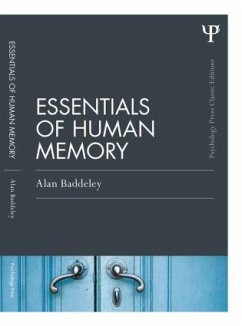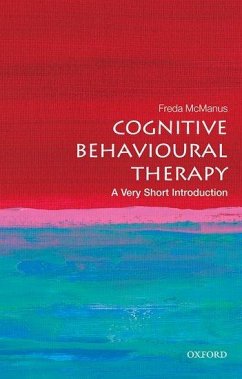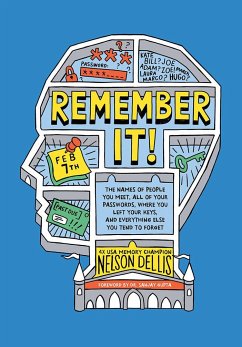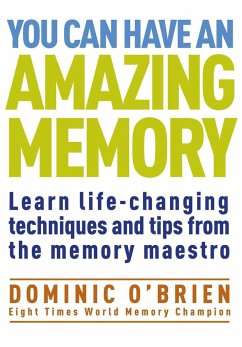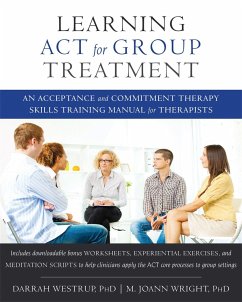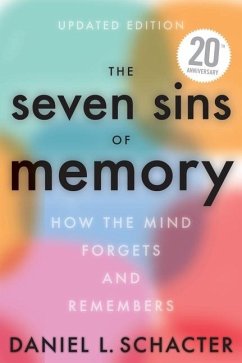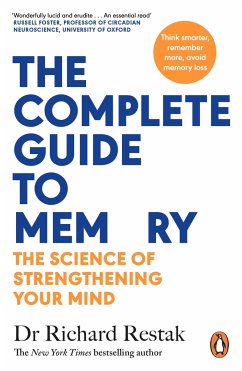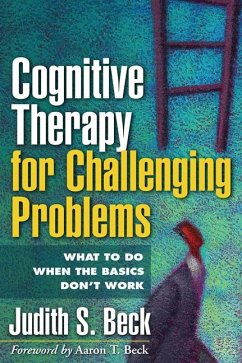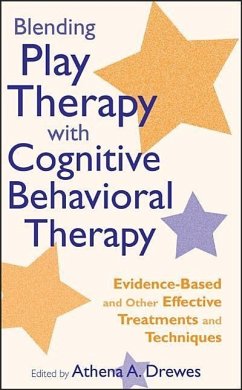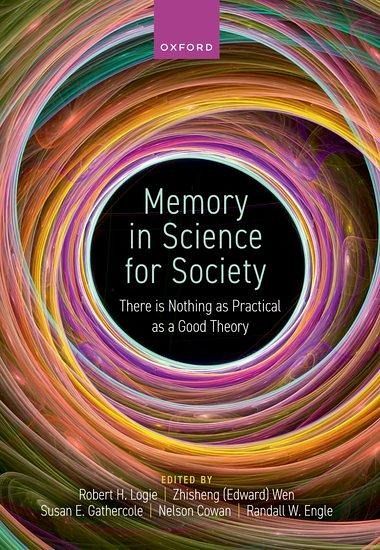
Gebundenes Buch
Memory in Science for Society
There Is Nothing as Practical as a Good Theory
Herausgeber: Logie, Robert; Wen, Zhisheng; Engle, Randall; Gathercole, Susan; Cowan, Nelson
Versandkostenfrei!
Versandfertig in über 4 Wochen

PAYBACK Punkte
41 °P sammeln!




Written and edited by the leading researchers in the field, Memory in Science for Society will be an important and influential addition to the memory literature, providing a new and comprehensive focus on the connection between theory and practice in memory and society.
Robert H Logie (PhD University College London, 1981) is Professor of Human Cognitive Neuroscience, University of Edinburgh (2004-), from 1980-1986 was at Applied Psychology Unit, Cambridge, 1987-2003 at University of Aberdeen. His theoretical and applied research focuses on healthy and impaired working memory across the adult lifespan. He is former editor Quarterly Journal of Experimental Psychology, associate editor Journal of Experimental Psychology: General, chair (2015) Psychonomic Society and Panel SH4 European Research Council. He is Fellow, Royal Society of the Edinburgh, and British Psychological Society, Honorary Member European Society for Cognitive Psychology, and 2023 Bartlett lecturer, UK Experimental Psychology Society. Zhisheng (Edward) Wen is currently a Professor in the Department of English Language and Literature at Hong Kong Shue Yan University, Hong Kong SAR, China. He has broad teaching and research interests in exploring the roles of working memory and language aptitude in native and second language acquisition, processing, evolution and development. His books include "Working memory and second language learning" (2016, Multilingual Matters), "Working memory in second language acquisition and processing" (2015, Multilingual Matters), "Language aptitude" (2019, Routledge), "Researching L2 task performance and pedagogy" (2019, John Benjamins), and most recently "The Cambridge handbook of working memory and language" (2022, Cambridge University Press). Susan E Gathercole has held professorial positions in psychology at the UK universities of Bristol (1995-2001), Durham (2001-2006), York (2006-2011) and Cambridge (2011 -), where she was Director of the MRC Cognition and Brain Sciences Unit to 2018. Her research has focussed on the mechanisms of memory, language and learning across the lifespan, and especially in typical and atypical development. Much of her work has focussed on the practical consequences of working memory problems for classroom learning and how they might be ameliorated. Her authored books include Working memory and language (with Alan Baddeley, Psychology Press, 1993) and Working memory and learning: A guide for teachers (with Tracy Alloway, Sage, 2008). Nelson Cowan (B.S. 1973, University of Michigan; Ph.D. 1980, University of Wisconsin) is Curators' Distinguished Professor at the University of Missouri. He publishes widely on working memory, its relation to selective attention, and its childhood development, funded by the U.S. National Institutes of Health since 1984. He edited the Journal of Experimental Psychology: General and has serve as associate editor for three journals. With honorary doctorates from the University of Helsinki and University of Liège, he is a Fellow of the Association of Psychological Science, American Association for the Advancement of Science, Society of Experimental Psychologists, and American Psychological Association (serving as President of Division 3). Randall Engle received his BS at West Virginia State University and his Ph.D. from Ohio State University. After positions at King College and the University of South Carolina, he was Chair of the School of Psychology Georgia Tech from 1995-2008. He is a fellow of the American Psychological Association, Association of Psychological Science, American Association for Advancement of Science, Society of Experimental Psychology, and the National Academy of Science. He was Chair of the Governing Board of the Psychonomic Society, Chair of the Board of the Council of Graduate Departments of Psychology (COGDOP), and President of Division 3 of APA.
Produktdetails
- Verlag: Oxford University Press
- Seitenzahl: 464
- Erscheinungstermin: 6. Juli 2023
- Englisch
- Abmessung: 236mm x 180mm x 38mm
- Gewicht: 1026g
- ISBN-13: 9780192849069
- ISBN-10: 0192849069
- Artikelnr.: 66812982
Herstellerkennzeichnung
Libri GmbH
Europaallee 1
36244 Bad Hersfeld
gpsr@libri.de
Für dieses Produkt wurde noch keine Bewertung abgegeben. Wir würden uns sehr freuen, wenn du die erste Bewertung schreibst!
Eine Bewertung schreiben
Eine Bewertung schreiben
Andere Kunden interessierten sich für


